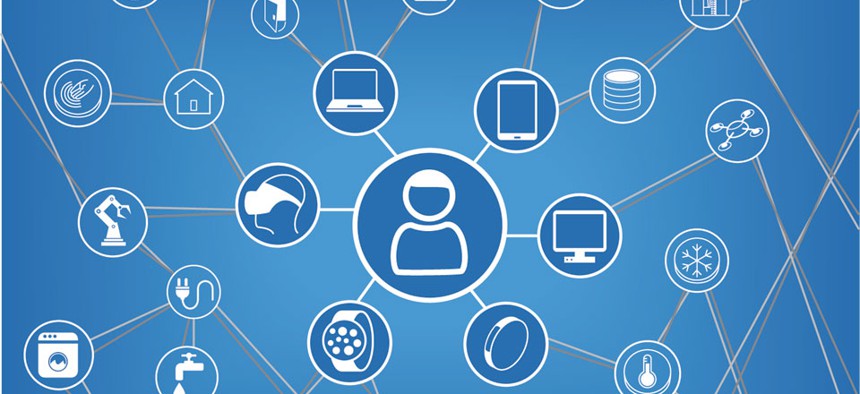Car Keys and Nuclear Keys: Big Data and the Internet of Things

a-image/Shutterstock.com
It will be up to the federal government to stitch together massive amounts of data into a comprehensible “nation of things.”
A year ago this week, I couldn’t find my iPad.
I had only bought the tablet three weeks earlier, so this was a kind of disaster. Breathe in, breathe out. Apple equips its devices with locators, and within 5 minutes I had tracked the iPad to a particular address -- my address. It took another two hours of searching to actually retrieve it from under a dresser, but in that time, it was comforting to know that my tablet was just collecting dust and not in a white van, bouncing away to a chop shop.
What I’m saying is, I know how the Internet of Things will change my life; I’m not going to lose anything again. But how will the Internet of Things change my government?
According to a December 2013 Cisco study, the Internet of Things offers a $4.6 billion opportunity for the global public sector by 2020. That’s a lot of money, but the majority of it won’t be on the federal level. Two-thirds of those benefits will accrue on the city level, and this makes sense.
The Internet of Things incorporates physical things -- trash cans, roads, bridges, streetlights, parking spots, trees -- things on the tactical level of governance, not the strategic level where the federal government typically operates.
This has already started to manifest itself in urban initiatives such as Philadelphia’s OpenDataPhilly.
That isn’t to say the federal government can sit back.
What are next steps for your forward thinking federal agency? It will be up to the federal government to stitch together massive amounts of data into a comprehensible “nation of things.” It will be up to the Transportation Department to piece together the interstate highway system of things. It will be up to the Environmental Protection Agency to piece together the watersheds of things. And yes, it will be up to the Defense Department to manage an evolving Internet of Things for the American military.
This is where big data initiatives become relevant. On every level, but particularly on the federal level, the Internet of Things will generate unprecedented amounts of data, and only through the analytics being developed today will the nation’s trillions of sensors and exabytes of data make sense.
The policy realm reflects the moment. The Federal Trade Commission issued an Internet of Things report Jan. 27. Congress has also expressed some interest in looking into the new technology. Right now, however, the conversation is very much centered around big data, typified by the White House’s May 2014 report.
So what can your agency do to prepare for the Internet of Things? Right now, it can engage in the conversation about big data. Tomorrow, that same conversation may have shifted to the Internet of Things.
On March 11, Nextgov will host an online webcast to discuss where big data is going in the government space. Featured speakers include Chris Mattmann, chief architect of the instrument software and science data systems section at NASA’s Jet Propulsion Laboratory, and Nagesh Rao, chief technologist at the Small Business Administration.
For more information about the event, register here.
(Image via a-image / Shutterstock.com)





